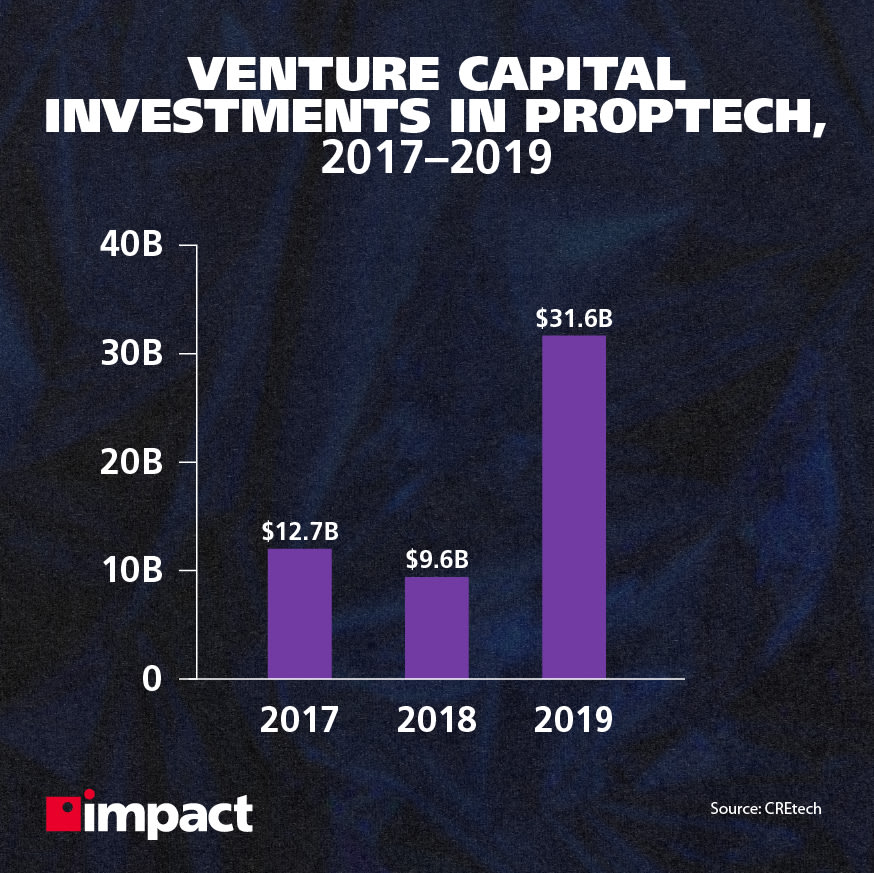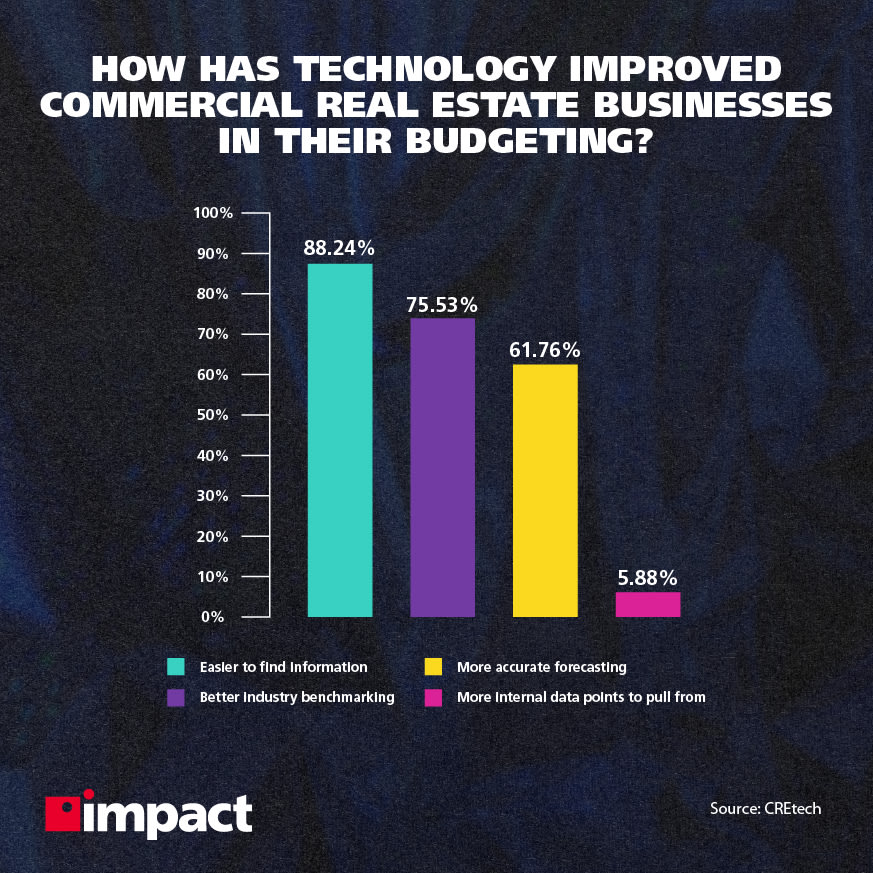What is PropTech? (definition): PropTech refers to the use of digital technology in real estate. This technology takes several forms, from apps like Trulia aimed at real estate listings, to CriteriaCorp for hiring professionals, to ManageCasa for streamlining communications between property owners, tenants, and agents. PropTech solutions often use advanced methods, like machine learning and automation, in order to provide these services.
Advancements in the real estate industry have lots of people asking what is PropTech, and how can it benefit them in the future?
PropTech is an amalgamation of the words “property” and “technology”, and refers broadly to the use of technology to improve processes and create new platforms for businesses and consumers.
PropTech will typically be thought of as a software platform of some kind. Perhaps one of the best-known examples of a successful PropTech venture is Zillow, which utilizes big data to power its extensive online database.
While applications are the most recognizable form of tech for businesses, it’s the use of data that’s key, and the relationship that organizations have with their data as they push their digital transformation projects forward. So while apps and platforms might be the most prominent forms of PropTech, it’s the underlying use of advanced technology that truly defines them as such.
Technology in real estate takes many forms, and today we’re going to be taking a look at what it encompasses, how it’s used by businesses and what the future holds for technology in real estate.
Growing Significance
The market for real estate technology has ballooned in recent years, with businesses in the industry making use of tech for their processes, management and strategy.
Similar growth has been observed in fintech (financial technology), HR Tech (human resources technology) and edutech (educational technology).
PropTech is a booming market, and with 60% of all PropTech companies worldwide coming from the US, tech in real estate will be an established feature now and in years to come.
The upwards trends of technology being used in these markets, including real estate, is largely commensurate with the rise of digital transformation as a whole, with businesses recognizing that making use of technology is crucial to ensuring a competitive edge.
As far as real estate is concerned, the effects of the pandemic will be felt for at least the coming year before any return to the pre-COVID environment. This has led to increases in spending on technology that can help their business navigate the ensuing complications.
Take Snapdocs, for example, the San Francisco-based company that offers a digital solution for the mortgage process through the cloud, bringing real estate professionals and buyers together. The business closed 1.5 million mortgage deals in 2020, and is just one of many digital solutions that are being increasingly used in the industry.
The COVID crisis has accelerated PropTech adoption, with 89% of PropTech investors and 84% of PropTech CEOs reporting that they believe the pandemic will increase the pace of PropTech adoption in the real estate industry.
Related Post: Infographic: The Landscape of SMB Technology Investment
Adoption of PropTech in the Industry
PropTech is an all-encompassing approach to technology by real estate firms which utilizes a number of different platforms to achieve better productivity and seek new opportunities.
90% of realtors think that the corporate real estate industry view PropTech as an opportunity.
However, despite its clear growth, there is still a lot to be done in terms of implementation and adoption.
While most agree that new technologies are the way forward, just one-third of real estate businesses have a strategy for tech adoption for the future.
This is not something that is exclusive to real estate—other industries, like manufacturing, for example, also find themselves catching up in terms of their digital capabilities.
This is particularly the case with SMBs, many of whom are aware of the need to improve their digital maturity, but often lack the financial means to do so.
For this reason, many small- and medium-sized businesses use managed services to take care of the strategy and implementation so they don’t have to start a transformation project on their own.
In Deloitte’s 2021 Commercial Real Estate Outlook, just 33% of commercial real estate businesses agreed that they had the skills and resources to operate a digitally transformed business.
They also found that 41% of CRE businesses had begun to accelerate redefining business processes, job roles, and skill requirements to include the use of technology and tools.
In other words, many real estate organizations acknowledge that their digital capabilities are not where they should be, but a significant minority are actively adopting new tech solutions and processes in order to address these shortcomings.
Granted, Deloitte’s outlook is based exclusively on commercial real estate, not residential, but the point still stands that there are both a lot of digital laggards and aspiring digital frontrunners in the industry.
What Are Some Examples of PropTech and How Does It Help?
Big Data
Big data refers to the large data sets that exist today in virtually every business, no matter how large or small.
It can be used to identify trends, formulate strategy and assess goals. Algorithms can be used to crawl this data, which is often unstructured and difficult to analyze, into easy-to-use, actionable data that aids decision making.
More than half of businesses now use big data as a central driver for their business decisions, while 90% of business professionals agree that big data and analytics are key to their organization’s digital initiatives.
For realtors, this means more accurate evaluations for property, using platforms and software that can assess geographic, demographic and economic factors to give more precise estimations that can then be used by employees.
Companies like Zillow and Trulia compete on their ability to compile and manage huge data sets for buyers and sellers to get the best deal.
Automation
Automation is useful for practically every organization, regardless of industry.
For the short term, the use and implementation of automation is a goal that many realtors are striving for.
Automation can be used for a variety of purposes; whether it’s automating lead generation, marketing campaigns, back-end office processes, transactions, accounting, contracts, or asset management, almost any pre-defined process can be automated to some extent. The reasons for doing so are obvious: streamlining processes to improve your office productivity and save some money.
A lot of PropTech trends we see today are rooted in automation, predominantly because that’s exactly what the market is demanding.
Automation is the most in-demand form of PropTech, with one-third of real estate businesses reporting that implementing it will have the biggest impact on the industry in the short term.
Artificial Intelligence
Much like law firms, real estate businesses are inundated with outdated paper methods for dealing with clients.
Using digital methods to sign contracts, for example, drastically reduces the time needed to facilitate the buying process.
Then you have chatbots, which can help alleviate the amount of time spent by employees on answering queries. Combined with augmented and virtual reality, users now frequently find themselves doing initial house viewings online, as opposed to requiring realtors to physically show them a location.
AI is also being increasingly used by realtors for property management, predicative investment selection and valuations.
Streamlining these common customer experiences is simple to implement and has significant advantages in terms of giving more time back to employees and improving productivity.
AI is highly valued among real estate professionals. When asked in a survey which technological innovation will have the biggest short-term impact on the real estate industry, AI was ranked joint-third, behind only big data and automation.
Looking Ahead
Real estate, similar to other industries like the legal industry and warehousing and manufacturing, has developed a reputation for being slow to change when it comes to digital transformation.
Over the last few years, the use of PropTech and associated technologies has caused substantial disruption, with many businesses looking to take advantage of advanced tech—many of them recognizing a greater need than ever to adopt it.
The combination of AI, automation, and big data has created an environment in which PropTech startups have been able to spring up in large numbers, offering new software and platforms for SMBs that need technology to get an edge over competitors.
A 2018 study found that 93% of the 270 real estate executives surveyed agreed that they need to engage with PropTech, and 90% believe it will help their business.
As businesses continue to invest in and make use of the advancements of PropTech, its place in real estate will continue to have a large influence on tech adoption in the industry for years to come.
Subscribe to our blog to receive more insights into business technology and stay up to date with marketing, cybersecurity, and other tech news and trends (don’t worry, we won’t pester you).

